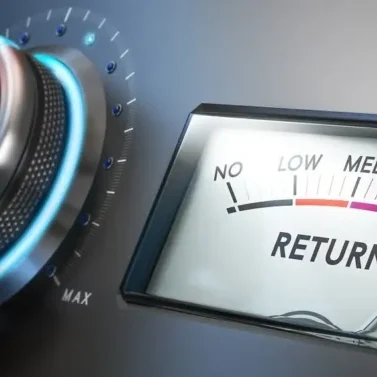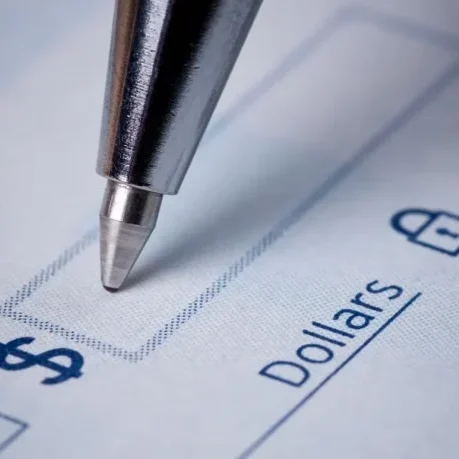Can I Get a Business Acquisition Loan with No Collateral?
Summary: There are many misconceptions regarding business acquisition loans and their need for collateral. This article explains the collateral requirements in clear terms and puts you in a better position to negotiate this requirement with lenders. The article covers:
- What is collateral?
- Why do lenders ask for collateral?
- Why is personal collateral required?
- Can you finance a business without personal collateral?
- What to do if you have no personal assets?
- Two "no-collateral" options
1. The basics: What is collateral?
"Collateral" refers to assets pledged to a lender as security for a loan. If the loan becomes delinquent, the lender can seize the collateral and use it to satisfy the debt. Business acquisition loans often ask borrowers to post the following collateral:
a) Business assets
All loans used to buy a business ask for the assets of the company you are acquiring to be pledged as collateral. Business assets include real estate, machinery, inventory, tools, and so on.
b) Buyer's personal assets
Loans also ask the buyers to pledge their personal assets as collateral. These assets act as backup collateral and are used if business collateral fails to satisfy outstanding debts. Personal assets include real estate, bank accounts, investment accounts, and so on.
2. Why do lenders demand collateral?
Lenders make loans assuming that the company will pay them back from company profits. In reality, they never want to be in a position to go after the borrower's collateral. Lenders pursue personal assets as a last resort. Unfortunately, some businesses fail, and their loans become delinquent. This is where collateral comes in.
Lenders ask borrowers to pledge collateral as a financial precaution. Collateral protects lenders from losses by increasing the lender's chances of repayment.
If the company fails, lenders usually foreclose corporate assets first. However, lenders may also go after personal collateral if corporate assets are insufficient to pay the outstanding debt.
Business acquisition loans usually require two types of collateral: business and personal.
3. Why is personal collateral required?
Buyers often ask why lenders demand personal collateral to secure business loans. After all, borrowers ask for a "business loan" and not a "personal loan." To understand this reasoning, let's look at this situation from the lender's perspective.
Most small businesses are ultimately managed by the buyers ("borrowers") themselves. Asking borrowers to pledge collateral accomplishes three essential objectives for the lender:
a) Ensures buyer commitment
A borrower who has pledged collateral stays committed to the success of the business. They will do whatever is possible to ensure that the company succeeds.
Consider the opposite scenario. Imagine a buyer who gets a loan without pledging collateral. This situation is referred to as an unsecured loan. Furthermore, assume that the business does not succeed and generates losses.
Without any personal risk, what is the buyer's incentive to stay on and fix the company? Their assets are not on the line. The borrower could walk away and let the lender get the failing business back.
b) Minimizes risky business decisions
Having personal collateral also ensures that borrowers will run the business conservatively. The borrower faces the consequences of bad decisions along with the lender.
Again, let's look at the opposite situation. What incentive does the borrower have to avoid high-risk, or even reckless, decisions if their collateral is not at risk? With an unsecured loan, the buyer has nothing to lose. If the business decision succeeds, they get to keep most of the gains. If the decision fails, the bank absorbs the loss. Ultimately, this arrangement provides the borrower with the wrong incentives.
c) Protects the lender from loss
Asking for collateral aligns some of the borrower's interests with those of the lender. However, the main objective of collateral is to protect the lender from loss.
If the lender cannot recover losses from the company's collateral, it will pursue the guarantor's collateral. This protection minimizes the lender's chances of absorbing a loss.
4. Are there unsecured loans that don't need collateral?
We should start with one necessary clarification. Individuals buying a company don't object to pledging the company's assets as collateral. In fact, they expect it. Their objection is to pledging their personal collateral. They are uncomfortable or unwilling to guarantee a loan and absorb losses personally.
Can a borrower get an unsecured acquisition loan without pledging their personal assets? We don't think so. We aren't aware of any lender that provides unsecured business acquisition loans. Realistically, we don't see why a lender would take that risk. The risk of loss is high, the borrower incentives are not there, and rates are not high enough to justify the risk.
This brings us to the subject of leveraged buyouts (LBOs) and management buyouts. Some buyers believe that LBOs allow them the option to buy a small business without pledging personal assets. Unfortunately, this belief is due to media misconceptions. For small business LBOs, these loans are not unsecured. You can learn more by reading "Can you do a leveraged buyout with no money down?" and "How much cash do I need to buy a business?"
5. What to do if you have no personal assets?
Some entrepreneurs worry about the personal collateral requirements because they have no assets to pledge. They have a legitimate concern that this situation prevents them from qualifying for an acquisition loan. In many cases, you can solve this problem using one of the Small Business Administration's (SBA) programs.
Keep in mind that the SBA does not make loans. This is a common misunderstanding. The SBA provides lender guarantees on behalf of borrowers. These guarantees work as an incentive for specialty lenders that offer loans to small business owners.
Most acquisition loans are offered through the SBA's 7a loan program. Qualifying for these loans is easier than qualifying for conventional acquisition loans. SBA loans are open to individuals who don't have assets but do meet the SBA's minimum personal credit requirement (note: currently at 650 to 680).
Keep in mind that the SBA's guarantee does not clear you of the personal collateral requirement. The loans are not unsecured. Instead, the SBA acts as a backup for the lender if they can't recover a loss from the borrower's assets.
Here is a simple explanation of how the SBA's guarantee works. If the loan defaults, the lender tries to recover its losses from the business's assets. If they cannot collect from the company, they try to recover losses from the borrower personally. Lastly, if the lender cannot recover its losses from the borrower, the SBA's guarantee kicks in.
To learn more about this process, read "How to get a loan to buy a business."
6. Two options for unsecured financing
Lastly, are there any options for financing a small business acquisition that don't require personal collateral? These options do exist but are extremely hard to get. These are the two most common options:
a) Venture capital and angel investors
Venture capitalists and angel investors can provide acquisition funding without asking for personal collateral. Instead, these investors often take a large portion of the business equity, along with seats on the board. They are often involved in the company's decisions and seldom play a "silent partner" role.
b) Seller financing
Some sellers are willing to offer financing to the buyers. Terms can be competitive and are negotiable. However, you must find a seller willing to:
- Offer 100% financing -and -
- Have flexible collateral requirements
An entrepreneur selling an attractive business is unlikely to finance 100% of the sale or make any negotiation concessions. It's not in their best interest. They will quickly find buyers willing to buy the business with conventional financing terms.
Consequently, only sellers who are "highly motivated to sell' are likely to consider making these concessions. These are usually undesirable transactions. Sellers need to make concessions to attract buyers. We should assume these businesses will be troubled and will require a turnaround effort.







